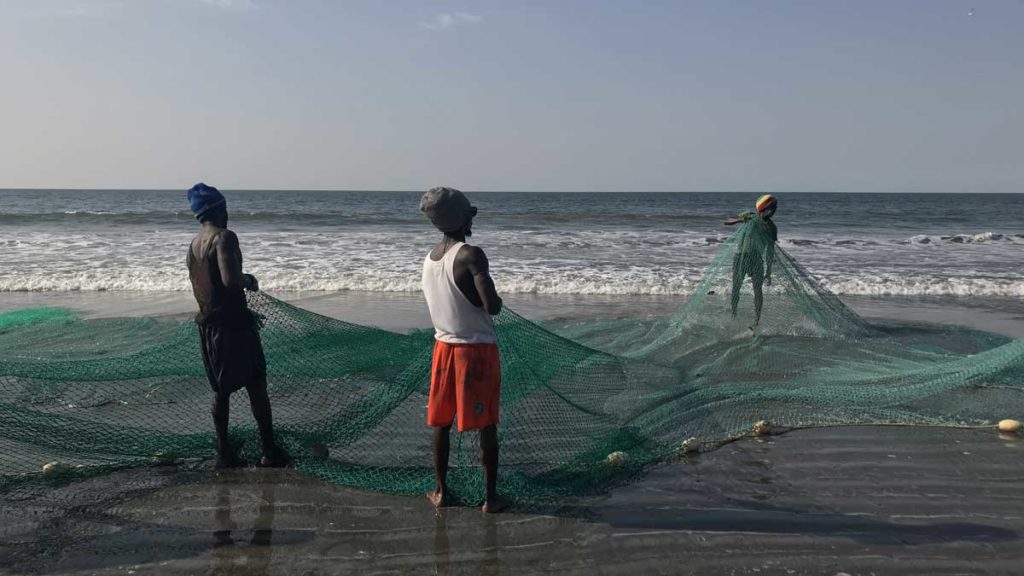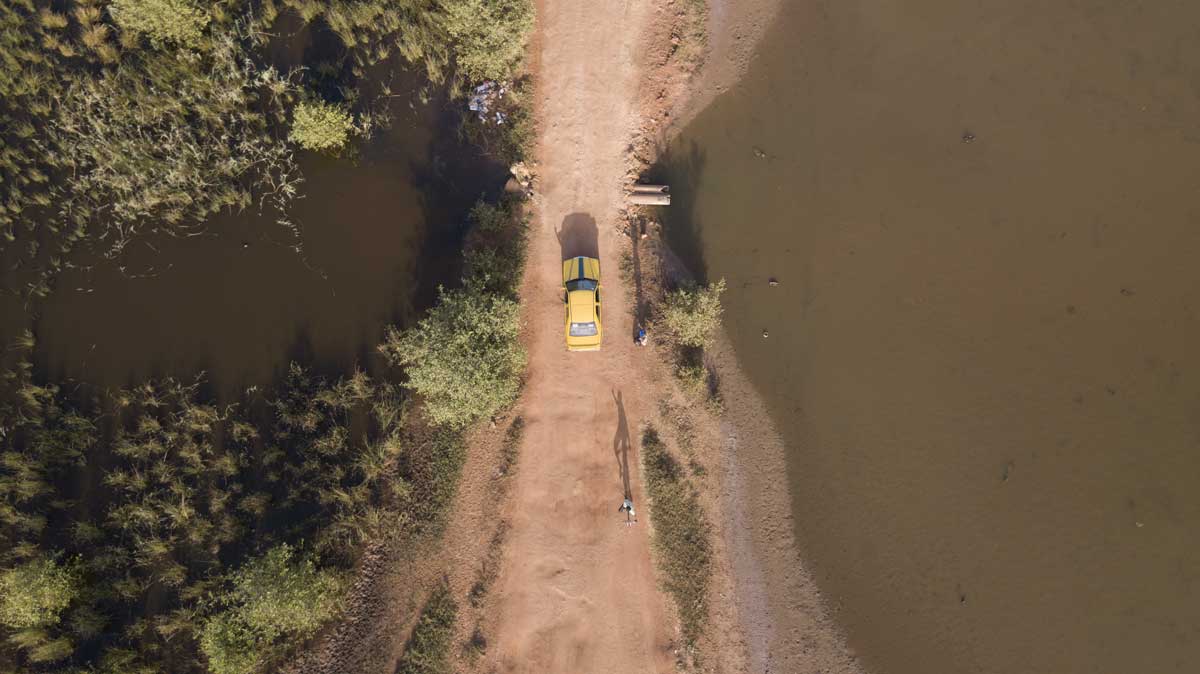As a tourist there are many great places to discover (e.g. the beautiful birds to watch and pristine beaches to enjoy), wonderful people to meet, great food to eat and unforgettable moments to experience.
As a Gambian it’s hard to survive: A qualified teacher earns approx. 3’500 Dalasi (approx. 50 Euro), a trainee teacher makes approx. 2’500 Dalasi (approx. 35 Euro) a month. A waiter at a restaurant in the touristic areas earns 5’000 to 7’000 Dalasi (70 to 100 Euro) and a gardener or cleaner at a hotel receives approx. 2’000 Dalasi (approx. 30 Euro). From these salaries a major part must be paid for transportation fees for the daily commuting. In the end there’s not much left for the living and the family. Such as the yearly school fees which come to approx. 1’200 Dalasi for the government, 2’500 Dalasi for the books and 800 Dalasi for the uniforms – per child.

With no natural resources for economic exploitation, agriculture, tourism and fishing represent the main industries of the country.
The growing tourism industry is gaining in popularity due to the potential salaries, while the hard and sweaty work in agriculture has lost much of its appeal. It would be so important for The Gambia to promote this sector as well as tourism, as over 80% of the fruit and vegetables consumed in The Gambia are currently imported from Senegal. Ecological and economic madness!
Especially relevant for agriculture the country provides plenty of water thanks to the Gambia River and the anual rainy season (July until September). Fishing on the other side has become a real challenge for the country in recent time as giant fishing boats from China and the EU are emptying the fishing grounds of The Gambia, mostly without government authorisation. Rather sooner than later this overfishing will result in empty fishing nets of the local families which will lead to another economical, ecological, social and geopolitical disaster. Because: If there’s no fish, there’s no food for these families. And that’s when fleeing to Europe is seen as the only way out of this misery. Watch the poignant documentary film by “The New Yorker” from 2021: How Fish-Meal Production Is Destroying Gambia’s Waters | The New Yorker

